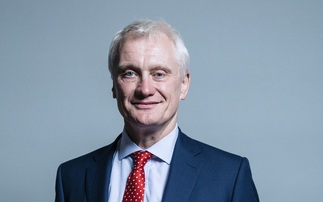A UN climate accord should be concise and flexible, according to a leaked French government briefing paper ahead of this week's latest ministerial meeting
Climate negotiators gathering in Paris today for the next round of preparatory talks ahead of the UN's crucial climate summit in December will be urged by the French government to ensure any legal agreement remains short and adaptable.
The legal core of any climate agreement must be concise and long-lasting to avoid another round of complex negotiations every few years, according to a briefing note prepared ahead of this week's meeting by the French government and seen by news agency Reuters.
The document also stressed the need for any agreement to make sure governments keep to their promise of emissions cuts, despite indications there will be no legal sanction in place to act as a deterrent for nations that breach their national commitments.
In addition, the text hinted at support for recent calls from a number of nations for a degree of flexibility in the final agreement, which could allow government's to "ratchet" up their emissions reduction targets if it becomes clear the world is not on track to limit temperature increases to 2C.
"There is a common understanding that the Paris agreement should be flexible, because it will need to adapt to changing circumstances," Reuters quoted the briefing paper as saying. "There is also a shared recognition that Parties should not have to negotiate a new agreement every five or ten years, but rather that the Paris agreement will form the basis for the enhanced implementation."
The briefing indicates a level of agreement between countries that bodes well for a global agreement later this year, referring repeatedly to a "common understanding" and "shared recognition" about the basic shape of a deal.
It represents the latest sign of mounting confidence that the negotiations will be able to deliver a wide-ranging emissions reduction commitment. Last week a group of senior negotiators released a paper hinting that a framework for a global climate pact is beginning to emerge.
The report suggested that negotiators are congregating around a deal that would see all countries commit to reducing their carbon emissions, but without any binding targets.
It also revealed growing support for proposals that governments review their plans every five years, with the aim of ensuring emissions reductions are in line with the previously agreed goal to limit average temperature rises to 2C.
This week's briefing note highlights one of the major concerns to emerge from the last round of talks in Bonn, Germany, which took place last month. Officials were forced to make a last-minute compromise allowing co-chairs of the negotiations to make their own alterations to the agreement, after failing to make much progress slimming down the 89-page draft text.
By agreeing a concise legal framework early on, French negotiators will be hoping to avoid a repeat of the Copenhagen summit, where governments were unable to agree over a vast and complex draft text. With talks in deadlock, the only agreement reached was a short, voluntary accord, signed after the talks had overrun.
However, while the talks are said to be proceeding in a conciliatory atmosphere this week's round of negotiations between a number of the key players will see ministers face a series of potential stumbling blocks, including on-going concerns about how money will be raised to meet climate funding commitments and fears national emissions targets are not compatible with the emissions cuts scientists warn are necessary.
Japan became the latest country to publish its official climate action plan, or INDC in the UN jargon, last week, prompting criticism that steeper cuts would be required from the country in the future. The government said it planned to cut emissions 26 per cent by 2030 against a 2013 baseline, but critics warned that the cuts looked less ambitious when set against a 1990 baseline, as Japan's emissions have climbed in recent years in the wake of the Fukushima nuclear disaster.
This article featured on BusinessGreen's Road to Paris hub, hosted in association with PwC









